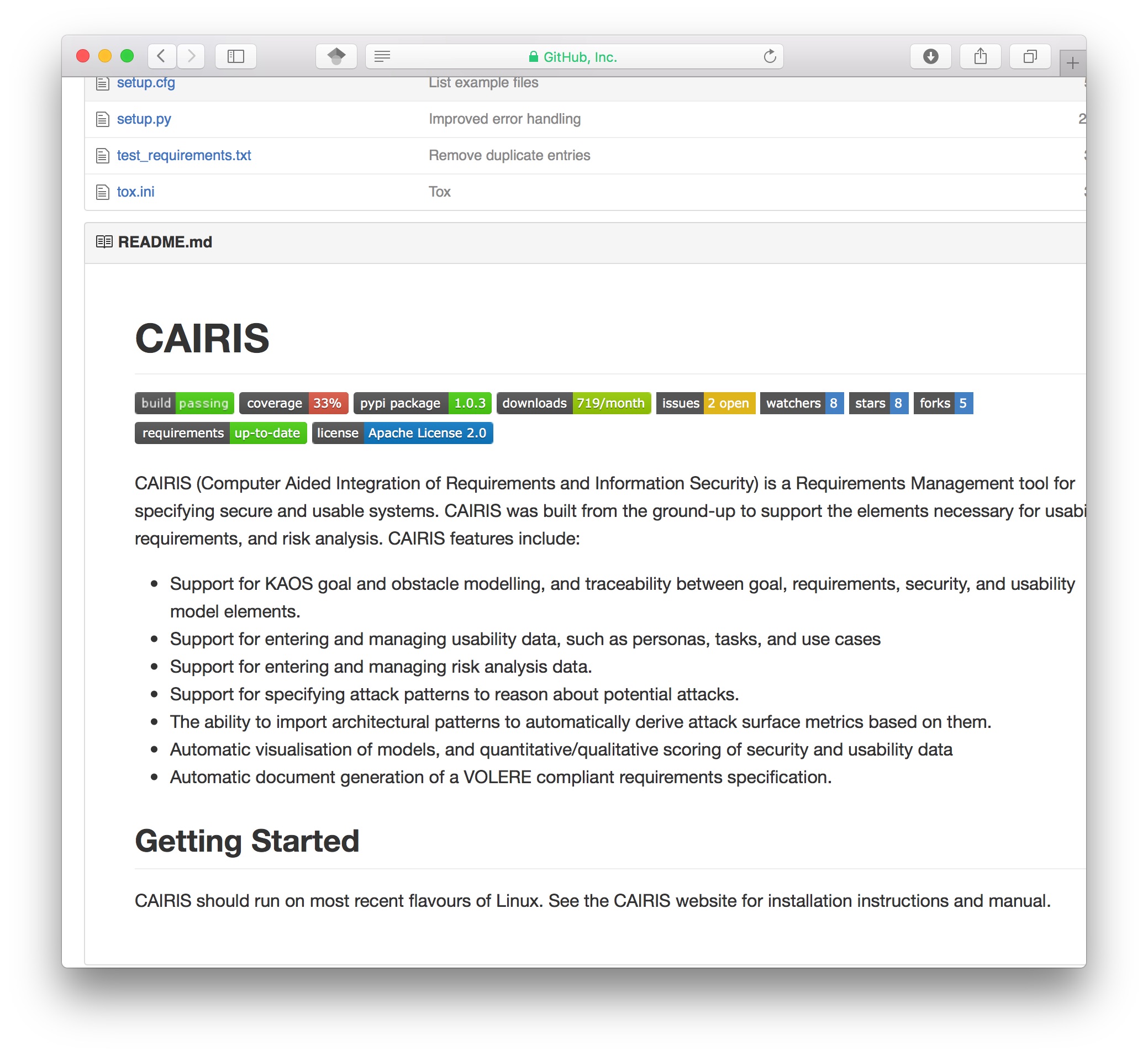Easing the process of adopting CAIRIS
Test, packages, and more
Easing the process of adopting CAIRIS
Although the blog has been quiet in recent months, a lot has been happening with CAIRIS. As a result of this work, it’s now easier than ever for both users and developers to adopt the tool. Here is a quick summary of these changes.
-
The CAIRIS source code on github has been reorganised. Everything is now properly structured into modules, making it easier for new developers to figure out where everything is, and how different components work together.
-
We’ve introduced several initiatives to improve the code quality and maintainability of CAIRIS. The repository has now been linked up with Travis and Coveralls, to provide continuous integration and coverage testing for repository changes. The repository also has requires.io integration, to ensure that CAIRIS’ dependencies are automatically monitored. We’ve added badges to the README file on github, so people can quickly check CAIRIS’ stability.

-
CAIRIS is now available as a package on PyPI. As you will see on the installation page, this vastly simplifies the installation process; this now entails little more than installing dependent packages, installing CAIRIS using
pip install, and running a script to configure the CAIRIS database. Moreover, we’re currently working on a Debian package for CAIRIS so, very soon, it will be possible to install and configure CAIRIS using just a single command. -
We’ve started the process of integrating CAIRIS-web into the master CAIRIS repository. In the first instance, we will be developing web services for frequently used CAIRIS functionality. However, in time, we plan to re-start work on a CAIRIS web app.
Watch this space for further updates on some of the above initiatives!